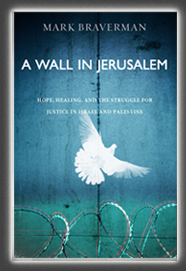
Nassar Farm Orchard Destruction and Pentecost Reflections
Dear Subscribers,
Last week I boarded an Amtrak train in Portland for the scenic ride to Seattle. I went there for the purpose of meeting up with my brother and friend, Daoud Nassar, the Palestinian farmer, peacemaker and owner of Tent of Nations, a 100-acre farm just south of Bethlehem in the Israeli-occupied West Bank. Many, probably most of you, know about Daoud, and have even been among the close to 50,000 pilgrims who have visited Tent of Nations in the past decade, 8,000 in 2013 alone. My trip to Seattle had been planned for some time, but now it had a particular urgency — the day before, Monday, May 19th, the government of Israel in the form of soldiers and several pieces of heavy equipment entered the Nassar farm in the early morning hours and destroyed a fertile valley, burying over 1500 productive fruit trees under piles of rubble. Stealing away before dawn, they left behind not only the dream of the planned harvesting of the most productive area of the farm, but ten years of work of terracing and sustainable irrigation. I found myself to be saddened and outraged, but not shocked. This act of madness and cruelty was one more example of the pattern of state violence and human and environmental destruction that has devastated, not only the prospect of coexistence between the indigenous Palestinians and Jewish immigrants to the land, but the dream of a safe, productive and egalitarian society that motivated those Jewish immigrants fleeing an inhospitable Europe. That dream has turned into a nightmare and the only way to redeem it is to put a stop to acts like this pre-dawn massacre of an orchard lovingly planted and tended by a Palestinian family and hundreds of international volunteers and visitors over the years.
The story of Daoud Nassar’s heroic and stalwart struggle to keep his land — in his family and legally registered for close to 100 years — from Israeli confiscation is well known. The tens of thousands of us who have known and loved Daoud and his family over the years have lived with the fear of government incursion and land taking, and, with Daoud, have worked to protect the land and the peacemaking work that has taken place there through advocacy and other legal means. Recent years have seen settler vandalism, unannounced visits from the military, and countless orders to demolish existing structures and cease cultivation — but this is the first time that the state has actually moved on the property and done damage. When I saw Daoud last week he was incredible. Unfazed, he stood before a group of 70 at a church in the suburbs of Seattle and told the story of his family and his dream of a thriving peace center and school for sustainable agriculture. Referring to the recent destruction, he wondered out loud to the audience what the soldiers and the bulldozer operators said to their children on returning home that day when asked, “how was your day?” As always, in the tradition of nonviolent resistance and in the spirit of Jesus, he thought of the damage to his oppressor. We sat together later that night and he talked about the plans to rebuild the terraces and replant the valley.
It is my firm conviction that this outrage provides an opportunity for nonviolent direct action that will continue to turn the attention of the world to the plight of Palestine and the requirement to liberate Palestinian and Israeli alike from the evil of apartheid in our time. As expected, expression of support from friends across the globe began immediately. There will be opportunities to be part of the rebuilding and information on that will be forthcoming. Now, it’s about raising our voices, in particular as U.S. citizens, to our elected officials, our Department of State, and to the Israeli government. Go to http://www.fotonna.org/newsletters/red-alert.html and click on “Sign the Petition.” You will also find addresses and phone numbers for government officials and a downloadable letter outlining the history of the family’s struggle and a timeline of events leading to the current crisis.

